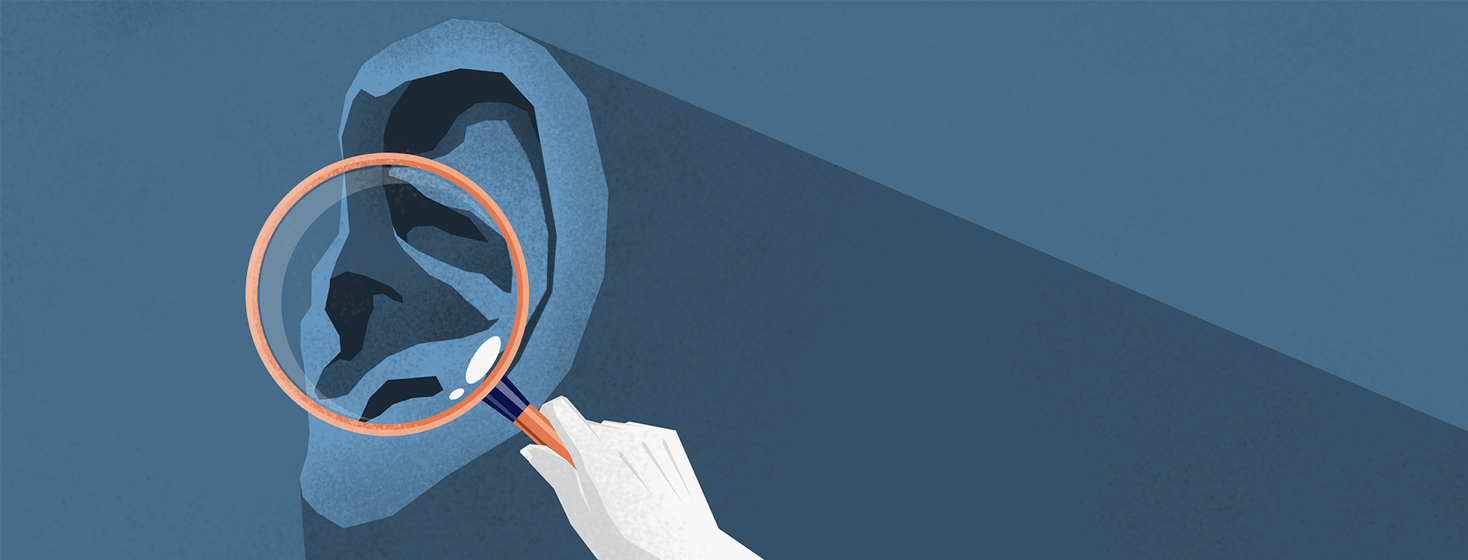Eerie Ears
Even before I was diagnosed with psoriasis I was always self-conscious about my ears. If you check out my profile picture you will see that I have a big head—a really big head. To reference Jim Gaffigan, I have a head that looks like a mascot. “Is his real head under that head?” Because my head is so large, it makes my tiny ears look even smaller. I’m sure they looked pretty normal when I was a kid, but apparently, they hit their peak growth at age 6.
My poor tiny ears became one of the first casualties of my psoriasis; they were constantly covered from the beginning. Throughout the years my psoriasis would travel around my body. I might notice a little clearing on my elbow, only to wake up the next morning with a new patch on my nose. My ears were the only part of my body that never experienced clearing for nearly a full decade.
If you have never had this problem, you might wonder why it is so bad. Aren’t there worse places to have it? Yes. There are worse places to have psoriasis when looking strictly at uncomfortableness, but when looking at secondary problems, the ears have it.
The itch that can’t be scratched
The psoriasis that invades my ears doesn’t have boundaries. It takes over not only the outside of my ears (where it makes my ears look like they are snakeskin (and not the trendy kind), but also inside. This has got to be the most annoying place to have psoriasis because it is in a place my big ol’ fingers can’t reach to scratch. If I try to itch it with Qtips I end up shoving flakes further down my canal. So I have to sit all day with this tickly prickly sensation in my ears.
What?!
Imagine slowly dropping wood shavings down your bathroom sink drain. It might seem harmless at first, but before you know it water starts building up as the drain clogs. This is what happens to my ears when my psoriasis is really bad. The flakes slowly fall into my ear canal until I find myself asking “huh?” so often that my wife yells “nevermind!” (which isn’t too bad when it gets me out of having to do the dishes or change a diaper.)
The hard thing about this is that it happens so gradually. It is like the frog that is in a pot of water that is slowly getting heated up. Often I don’t realize how bad it is until someone suggests I get my hearing checked. This can sometimes be embarrassing; especially in situations where the person talking to me thinks I am ignoring them.
What ends up happening is that I have to go in fairly regularly and get my ears cleaned out. This is NOT a fun process. In fact, it is really painful. A medical professional has to irrigate my ears with high powered water. It’s like going down a fast water slide and hitting the water ear first. Not to gross you out, but when ear wax gets compacted with skin flakes, it forms a pretty impermeable rock. But boy, oh boy, does it feel better once they are cleared out. The only downside is that everything sounds a million times louder!
It gets worse
Because all this gunk is in my ears so consistently, I have developed ear infections pretty regularly over the years. I don’t know what is worse: the pain of the psoriasis itself, or the pain that comes from an infection caused by the psoriasis. Combine those two things together and you have a week of misery and antibiotics.
When I think about the possibility of future flares to try and brace myself, I always hope my ears aren’t the first area to rebound. It might sound silly to some, but I would rather the big patch on my forehead come back before my ears. But for now, I will just continue to enjoy each day I get without my ears being coated and try to block out the memories of the irrigation machine!

Join the conversation